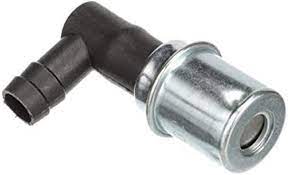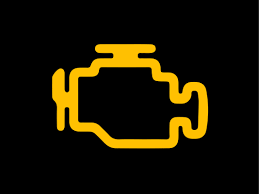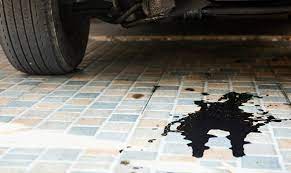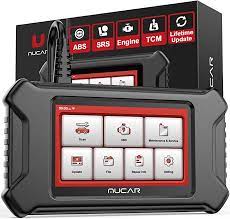How Do You Know You Have a Bad PCV Valve and How Much Does it Cost to Replace?
In this article we will explain what a PCV valve actually is, what it does, how to spot signs that it may have gone bad and very importantly how much it costs to replace. It’s rather innocuous which belies its importance in our engines so this could be some vital information.
What Is a PCV Valve?
The Position Crankshaft Ventilation (PCV) valve is a part that has been around in engines for a long time pre-dating several more modern emissions limitation devices. This device's purpose is to eliminate emissions from the engine's crankcase.
Any emissions in the crankcase are sent to the intake. From here these emissions are essentially recycled into another combustion process. This serves to further clean the emissions and improve overall efficiency.

Generally speaking all PCV valves have a similar construction which includes two housing connectors containing a spring-loaded one-way valve. Depending on how hard you are running your engine this valve opens and closes to accommodate the amount of emissions in the crankcase.
While idling there are fewer emissions so the valve is mostly closed. While you rev the engine however emissions increase so the valve opens wider. The vacuum caused by the pressure of the emissions is what will cause the valve to open and close.
How Do You Know the PCV Valve Is Not Working?
Sensors in the engine keep track of emissions and they will often be able to tell you if there is an issue with the PCV valve. As this will take a special scanner and a list of codes however there are also a host of indications to look for that might tell you you have a PCV valve issue.
Check Engine Light Comes On
In all honesty your check engine light coming on can mean hundreds of potential faults and really doesn’t tell you a lot without further diagnostic steps. You will need to either get a mechanic to help or you can purchase an inexpensive OBD2 scanner tool.
When engine related issues occur they are recorded as faults in the electronic control module (ECM). Plugging the scanner tool into your vehicle will allow you to read the codes recorded in the ECM. You will however need a list of meanings associated with the codes to know more precisely what problem is recorded.

Ultimately though, the check engine light will be your first warning that something is wrong and it could be the PCV valve among other issues.
High or Rough Idling
If you know your car well you may know how high it revs while idling. A faulty PCV valve can cause symptoms similar to an intake leak which can cause your RPMs to increase during idling or a very obvious rough idling.
Any changes to how your car normally idles that can not be explained by weather conditions may be related to the PCV valve. This is why checking for this fault is always a good first step in diagnosing this symptom.
Misfires or Gasoline Smells
These two symptoms are on the different ends of the fuel/air mixture spectrum. There is an ideal mixture range for fuel and air in the combustion process of engines.
If you have too much fuel in the mix this can be called a rich mixture. It can cause gray white smoke from the exhaust as the excess fuel does not get used fully in the combustion process. You may also be able to smell gasoline.
A lean mixture is when there is too much air in the mixture so the combustion in the chamber is not as strong as it should be or it does not ignite at all. This is called a misfire or backfire and is an often noticeable occurrence.
Indications of lean or rich fuel mixtures could also be indications that the PCV valve is not operating as it should. This can be a result of pressure caused by the emissions in the crankcase.
Rough Acceleration
If your acceleration is normally smooth you might find issues with fuel/air mixtures can make it noticeably rough. This may be an audible presentation or perhaps vibrational in nature. Whichever it is the PCV valve may be the cause of fuel/air issue and subsequently the rough acceleration.
Oil Leaks
A faulty PCV valve can cause an increase in pressure inside the crankcase which in turn causes issues in the cylinders and gaskets. This extra pressure can cause oil leaks from the gaskets and cylinders which may be found on the ground under the car.

Even if you do not see a pooling of oil below the car a check of the oil level will tell you if you are losing engine oil at a strange rate.
Smokey Exhaust
Ideally we should not be able to see our exhaust emissions unless it’s a really cold day. If you are seeing white, black or blue smoke coming from your exhaust then something is not right. These are signs of bad fuel/air mixtures, burning and poor emission control.
White or black smoke will indicate fuel mixture issues while the blue smoke means that engine oil is getting into the combustion process and burning. Neither of these is good and both can indicate that the PCV valve may need repair or replacement.
What Error Code to Look For
As mentioned an OBD2 scanner tool can pull the error codes from your car's ECM which when compared to a list of codes for your model can give you an answer as to what the issue is. In this section we will give you some of the more common PCV valve related codes to watch out for.
- P052E – Positive Crankcase Ventilation Regulator Valve Performance
- P0171 – Fuel System Too Lean (Bank 1)
- P0300 – Random/Multiple Cylinder Misfire Detected
- P053A Positive Crankcase Ventilation Heater Control Circuit /Open

The codes for your car may be different so always double check with an owner manual for your specific model and year. Many of the above codes are universal but some auto manufacturers play by their own rules and use technology that other companies do not.
Where Is the PCV Valve?
This is a good question and thankfully this is not a hard part to locate if you have a passing knowledge of what you are looking at under the hood. This valve is generally located on the valve cover which is on top of the engine.
Alternatively you might find this part on a hose between the valve cover and the air intake filter. Trace the hose on top of the engine and you should find the PCV valve. Also double check the diagrams in your owner's manual to help you make sense of what you are looking at in the engine.
How Much Does It Cost to Replace a PCV Valve?
The part itself does not cost a massive amount to replace somewhere between $50 - $250 with parts and labor. Those with older cars will find the parts are easier to replace so there is a decent chance you could make this repair yourself.
Newer vehicles are more complicated so you may need a mechanic to make this replacement. It generally should not take long although some vehicles have PCV valves that are harder to get to so may take longer and as a result cost more to repair using a mechanic.
Conclusion
The PCV valve is important to the efficiency and emissions control of your engine and if it is faulty it can cause you other problems. It is one of those parts that is simple for the most part but when it does not function correctly it can cause damage elsewhere.
It has noticeable symptoms when it is not working correctly and using a scanner tool you can diagnose this issue very quickly. It is not an expensive repair but ignoring it may lead to further more pricey engine repair issues.
Link To or Reference This Page
We spend a lot of time collecting, cleaning, merging, and formatting the data that is shown on the site to be as useful to you as possible.
If you found the data or information on this page useful in your research, please use the tool below to properly cite or reference Tow Ratings as the source. We appreciate your support!
-
<a href="http://towratings.net/blog/how-do-you-know-you-have-a-bad-pcv-valve-and-how-much-does-it-cost-to-replace/">How Do You Know You Have a Bad PCV Valve and How Much Does it Cost to Replace?</a>
-
"How Do You Know You Have a Bad PCV Valve and How Much Does it Cost to Replace?". Tow Ratings. Accessed on April 20, 2024. http://towratings.net/blog/how-do-you-know-you-have-a-bad-pcv-valve-and-how-much-does-it-cost-to-replace/.
-
"How Do You Know You Have a Bad PCV Valve and How Much Does it Cost to Replace?". Tow Ratings, http://towratings.net/blog/how-do-you-know-you-have-a-bad-pcv-valve-and-how-much-does-it-cost-to-replace/. Accessed 20 April, 2024
-
How Do You Know You Have a Bad PCV Valve and How Much Does it Cost to Replace?. Tow Ratings. Retrieved from http://towratings.net/blog/how-do-you-know-you-have-a-bad-pcv-valve-and-how-much-does-it-cost-to-replace/.